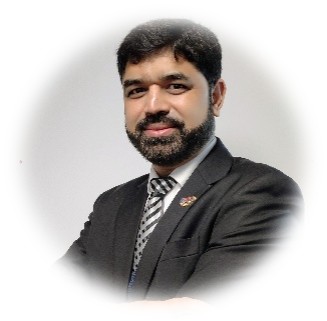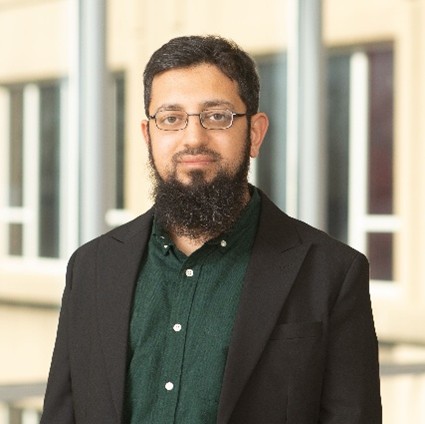Keynote Speakers
Biography:
Dr. Junaid Shuja is currently serving as an Assistant Professor at Southeast Missouri State University, Missouri, USA. He has previously held academic and research positions at several esteemed institutions, including Universiti Teknologi PETRONAS, Malaysia; the National University of Computer and Emerging Sciences (FAST-NUCES), and COMSATS University, Pakistan. Additionally, Dr. Shuja has contributed as an adjunct lecturer at UCSI University, Malaysia. Dr. Shuja earned his Ph.D. in 2017 from the University of Malaya, Malaysia, under the prestigious BrightSpark scholarship. His doctoral research focused on the execution and offloading of SIMD (Single Instruction, Multiple Data) instructions across heterogeneous mobile and cloud platforms, for which he was honored with the "Graduate on Time" award for his timely completion. His research interests are diverse, encompassing the application of machine learning techniques in edge computing, the advancement of Large Language Models (LLMs) for low-resource languages, and the exploration of Blockchain technologies. His research is highly cited and he has been listed in the top 2% researchers by the Stanford report in 2022, 2023, 2024, and 2025. Dr. Shuja has published over 80 research articles in leading international journals and conferences. He currently serves as an Associate Editor for Telecommunication Systems, Cluster Computing, and Discover Computing. His research proposal have been funded by Higher Education Commission Pakistan and Ministry of health Saudi Arabia.
Abstract:
Peer review can be more efficient when using artificial intelligence (AI) and large language models (LLMs). However, there are also issues with academic integrity and authenticity. This study investigates the dual role of AI in peer review: as a tool for enhancing evaluation quality and as a potential source of superficial, AI-generated feedback that undermines scholarly standards. Pal-reviews, providing generic comments with no critical feedback, are another pressing subject in scientific publications. This talk explores the role of language models in automatically auditing and categorizing genuine reviews, AI generated reviews, and pal-reviews. The publisher policies are investigated alongwith available datasets. Initial findings are discussed following a methodology that involves combining paper titles, abstracts, and review text with special tokens, employing robust text encoding techniques. Five language models are investigated for accuracy while research challenges are presented for future directions.

Dr. Junaid Shuja
Senior Lecturer, School of Technology, Asia Pacific University of Technology & Innovation (APU), Kuala Lumpur, Malaysia
Biography:
Dr. Hassan Jamil Syed is a Senior Lecturer at the School of Computing, Asia Pacific University of Technology & Innovation (APU), Kuala Lumpur, Malaysia. He holds a Ph.D. in Computer Science, an M.S. in Telecommunications, and a B.E. in Electrical Engineering, with over 20 years of combined academic, research, and industry experience, including work with an Internet Service Provider (ISP).
His research focuses on cloud computing, cybersecurity, system observability, and AI-driven kernel-level security, particularly through eBPF-based intelligent monitoring in cloud-native environments. He has published widely in high-impact journals such as IEEE Access, Sensors, and Applied Sciences, and serves as a reviewer for several IEEE and Elsevier journals.
Dr. Syed has also contributed extensively to academic leadership and conference organization, serving as Chair, Purchase Committee – FAST-NUCES (2020–2022), Technical Program Committee Co-Chair – ICETST 2020, and Member, Technical Committee – AMICT 2023 & 2025. His current research advances the integration of AI with system-level observability for secure, self-healing cloud infrastructures.
